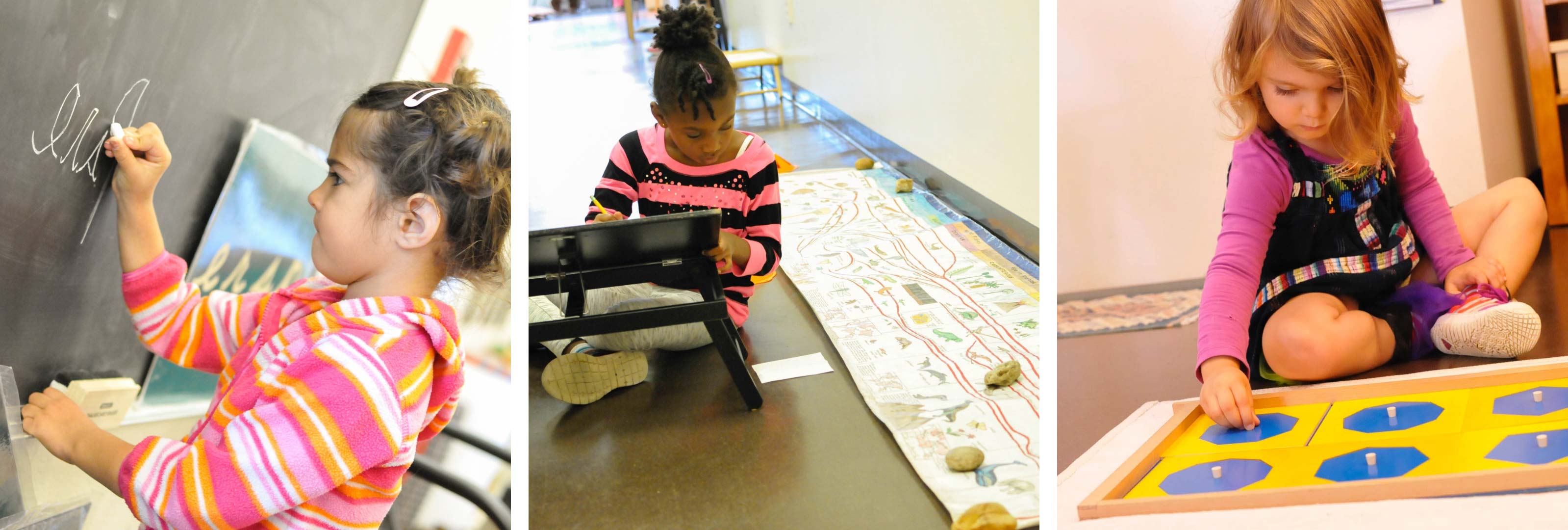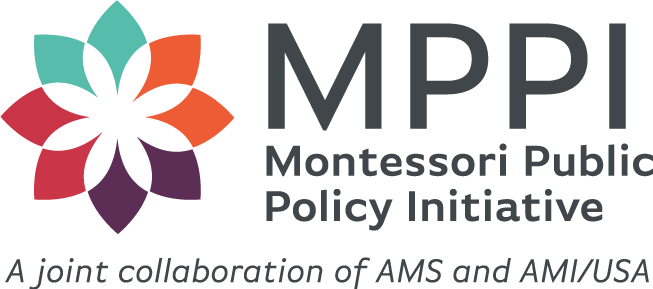What is Montessori?

Rooted in neuroscience and human development, Montessori education begins with the premise that children are naturally curious, learn from their surroundings, and desire independence. Recognizing that children are intrinsically capable, Montessori teachers create a classroom environment that cultivates confidence and empowers children to master the array of academic and social skills that will serve them not only in future educational settings, but throughout life.
By design, authentic Montessori classrooms incorporate several core elements that work in concert with one another to optimize each child’s cognitive, social, emotional, and physical development. Because these elements are interdependent, they must all be present and well supported for a classroom to be Montessori.
A Prepared Environment
All aspects of the classroom including furniture, materials, and supplies are thoughtfully designed for and accessible to children, making all elements of the classroom integral components of a child’s education. Ensuring that children have what they need to function independently builds confidence and allows them to take ownership in caring for their classroom community. An aesthetically pleasing environment draws children in to explore all that the classroom has to offer.
Materials
A full complement of carefully sequenced and scaffolded Montessori materials allows children to build skills, knowledge, confidence, and mastery of academic concepts consistent with widely accepted educational standards such as Common Core. Children receive lessons individually or in small groups, affording the teacher the opportunity to observe each child’s comprehension and offer individualized supports.
Uninterrupted, Daily Work Periods
Children are capable of deep concentration, and offering them open ended time to engage with materials bolsters their attention span and strengthens their ability to focus, both of which will undergird all of their learning.
A High Degree of Freedom
Children in a Montessori classroom have significant freedom to choose what to work on, where to work, and how long to work with any particular material. This freedom honors the child’s own needs and internal pace, allowing them to stay with a given concept until they feel confident with it, or to dive more deeply into a subject they are passionate about. Within this environment of choice, teachers ensure that children engage with all subject material and acquire age appropriate academic skills.
3-Year Mixed Age Groups
Across certain age bands, children share multiple developmental characteristics. As such, Montessori classrooms intentionally group children together in three-year age groups. Younger children learn from their older peers and are motivated by observing their older peers’ activities; older children develop leadership skills and have concepts reinforced as they assist younger classmates. Children are often able to problem solve independent of the teacher because a community of peer support is fostered.
Higher Adult-Child Ratios and Group Sizes
The Montessori classroom is a dynamic learning environment with multiple activities occurring simultaneously. Because the entire classroom is designed to optimize children’s independence, adults are not needed to manage every situation or ‘control’ a group of children. The classroom materials themselves allow children to repeat, and master concepts and explore information. In addition, children learn with and from each other and are not solely reliant on the teacher. Larger class sizes are by design, to give children greater agency over their own learning.
Montessori Trained Teachers
All of the above components can only be well implemented and supported by an individual specifically trained in the Montessori method, namely a person holding a credential from an AMI or AMS affiliated training center, or from a MACTE accredited teacher education program. Rigorous coursework rooted in child development combined with student teaching prepare individuals to implement all of the above components. Through record keeping and observation, Montessori teachers follow each child’s progress and individualize the curriculum to ensure they are reaching their fullest potential academically, socially, and emotionally.
